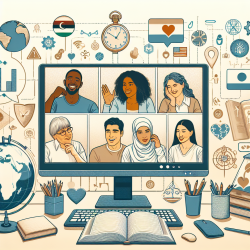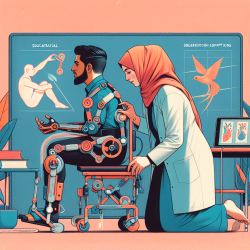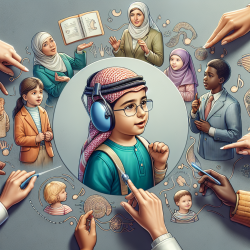Decolonizing education in global health is a pivotal topic that resonates across various fields, including online therapy services. The article "Introduction to Special Collection on Decolonizing Education in Global Health" underscores the need for a profound shift in how educational frameworks are structured, delivered, and received. As practitioners at TinyEYE, implementing these insights can significantly enhance our online therapy services, ensuring they are more inclusive, equitable, and culturally sensitive.
Understanding Decolonization in Education
The research article highlights several key areas where decolonization can take place:
- Shifts in leadership structures
- Priority setting processes
- Knowledge/cognitive paradigms
- Power dynamics
- Financial arrangements
- Curricular innovation
- Policy changes in research, education, and practice
For online therapy practitioners, this means re-evaluating how we engage with students and educators, the content we deliver, and the methods we use to ensure our services are culturally competent and equitable.
Practical Steps for Implementing Decolonized Practices
To integrate decolonized education practices into our online therapy services, consider the following steps:
1. Inclusive Leadership
Promote diverse leadership within your team. Ensure that voices from various cultural backgrounds are included in decision-making processes.
2. Culturally Relevant Curriculum
Revise your therapy materials to reflect the cultural contexts of the students you serve. Incorporate diverse perspectives and examples that resonate with their lived experiences.
3. Equitable Access
Ensure that all students have equal access to therapy services. This might involve providing resources in multiple languages or offering flexible scheduling to accommodate different time zones and lifestyles.
4. Reflective Practice
Encourage continuous reflection among practitioners. Regularly assess how your own biases might affect your practice and seek ongoing education on cultural competence.
5. Community Engagement
Engage with the communities you serve. Understand their needs, challenges, and preferences to tailor your services effectively.
Encouraging Further Research
The process of decolonizing education is ongoing and requires continuous effort and reflection. Practitioners should be encouraged to delve deeper into this topic, exploring how decolonized practices can be further integrated into their work. Engaging with current literature, attending relevant workshops, and participating in discussions can provide valuable insights and drive meaningful change.To read the original research paper, please follow this link:
Introduction to Special Collection on Decolonizing Education in Global Health.










